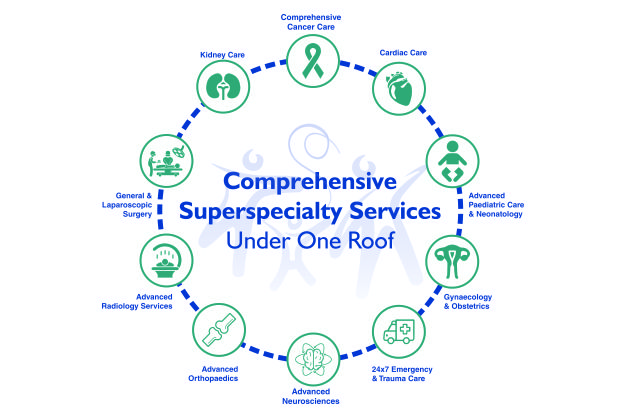
DATE : 26/05/2023
AUTHOR : AIMS Hospital
Epilepsy is a neurological disorder characterized by recurring seizures. It affects millions of people worldwide and can have a significant impact on their daily lives. Understanding epilepsy is crucial for effectively managing the condition and providing support to those affected by it.
Seizures in epilepsy occur due to abnormal electrical activity in the brain. This abnormal activity disrupts the normal functioning of brain cells, leading to a wide range of symptoms. Seizure types can vary, ranging from mild and barely noticeable to severe and debilitating. Some common types of seizures include generalized tonic-clonic seizures (formerly known as grand mal seizures), absence seizures, and focal seizures.
The causes of epilepsy can be diverse. In some cases, the condition may be the result of genetic factors or brain abnormalities present from birth. Other causes can include head injuries, infections, stroke, or tumors. However, in many cases, the exact cause of epilepsy remains unknown.
Diagnosing epilepsy involves a thorough medical evaluation, which typically includes a detailed medical history, physical examination, and neurological tests. Electroencephalogram (EEG) is a common diagnostic tool that records brain activity and helps identify abnormal patterns indicative of epilepsy. Imaging tests such as magnetic resonance imaging (MRI) may also be used to detect any structural abnormalities in the brain.
Treatment for epilepsy aims to control seizures and improve the individual's quality of life. The primary treatment option is antiepileptic medication, which helps reduce the frequency and intensity of seizures. In some cases, surgery may be considered to remove brain abnormalities causing seizures. Additionally, lifestyle modifications such as getting adequate sleep, managing stress, and avoiding triggers can help minimize seizure occurrences.
Living with epilepsy requires ongoing management and support. Individuals with epilepsy should work closely with healthcare professionals to monitor their condition, adjust medication dosages if necessary, and address any side effects. Support from family, friends, and epilepsy support groups can also be beneficial in coping with the challenges of living with epilepsy.
In conclusion, epilepsy is a complex neurological disorder characterized by recurring seizures. It can have various causes and affects individuals differently. Diagnosis, treatment, and ongoing management are crucial for individuals with epilepsy to live fulfilling lives. With appropriate medical care, support, and understanding, people with epilepsy can effectively manage their condition and thrive in their daily lives.
In Paediatric Neurology, Paediatric epilepsy syndromes are well-defined with indeed a few unique syndromes restricted to infancy and childhood. Management includes investigations, such as EEG, MRI, blood tests, and medications. There are newer treatment modalities available for the treatment of difficult to control epilepsies. These include epilepsy surgery for the surgically remediable epilepsies, ketogenic diet, and vagal nerve stimulation.
At AIMS Hopsital we have special department for Neurology and Neurosurgery .
ABOUT US
About AIMSDirector's Message
Vision & Mission
Accreditations
Awards & Accolades
Our Network
Phone Directory
Designed by Web Creations 2022. All rights reserved.










